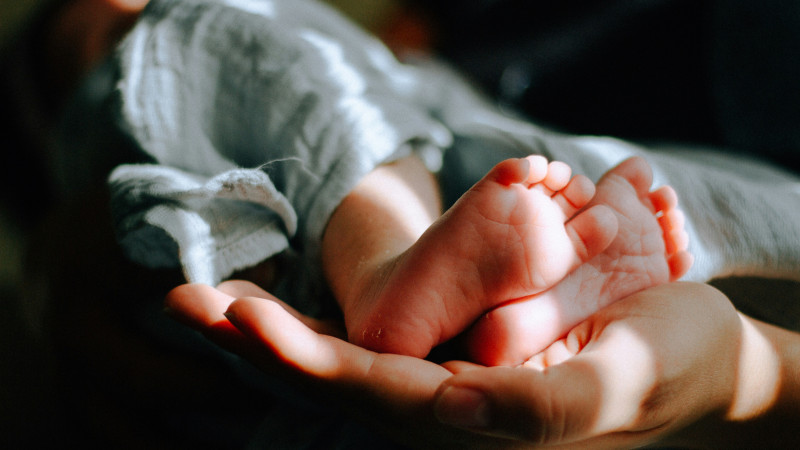Stinky Diapers

Clean cloth diapers should not smell of anything. Not dirty nor of detergent. They should smell clean. If your diapershave an odor after they’ve been through the wash, it might be a good idea to revisit your wash routine.
To prevent smells it is advised to
keep dirty diapers with proper airflow in an open pail between laundry days
rinse soaked nighttime diapers in the morning
wash every other or every third day
not overfill your washing machine
Use a two-cycle wash routine, pre-wash cycle and a cleaning cycle
use warm or hot water in your cleaning cycle
Ammonia smell
Ammonia smell in cloth diapers arises when the diapers aren't getting cleaned properly during the wash cycle. This can result from various factors, usually improper washing techniques, urine residue, detergent buildup or hard water.
Mild ammonia smell is unpleasant but can be subtle or unnoticeable. In contrast, strong ammonia smell is sharp and can feel like it burns your nose.
Ammonia forms from urea within hours. If it isn't promptly and thoroughly washed out of cloth diapers, it begins to degrade the fabric. Ammonia in cloth diapers will burn and cause skin irritation and rashes for your baby. Ammonia rash looks like a burn and often occurs around legs where the elastic lies or over baby’s entire diaper area. Ammonia should therefore be dealt with right away if it occurs.
To eliminate the ammonia, you will need to perform a reset on your diapers and sanitize them. Always conduct a cloth diaper reset on "clean" diapers.
To prevent future ammonia from building up in your diapers, it’s essential to identify the cause of the initial problem and remedy that.
Improper washing routine: Cloth diapers should go through two cycles. The pre-wash cycle that effectively removes excess urine, allowing the main wash to thoroughly clean your cloth diapers. New washing machines today save water for the environment, and by doing one cycle with pre-wash and a clean, might make your washer reuse the water from the initial rinse. Hence, your washer is cleaning with dirty water, leaving urine or fecal residue behind. Therefore it is recommended to do two seperate cycles to make sure your cleaning cycle is as effective as possible and is using new clean water. If you have soft water you might need to do a final rinse to get all extra detergent out.
Detergent Buildup: When detergent accumulates on the fibers of your diapers, it can prevent new detergent from properly cleaning them during the wash. Reducing the amount of detergent in each wash cycle might help with build up. For most washers using a tablespoon or 2 is often sufficient to get everything clean. Adding a second rinse to your wash routine can help prevent future buildup. If detergent build up occurs, you will need to rinse all your diapers until all the leftover detergent is gone. This is usually most efficiently done by hand, under running water. It is recommended to clean the washer every month to prevent build up, mold and bacterial growth in your machine. Powder detergent generally contains more water softeners and is typically preferred for households with hard water. Households with soft water should consider using liquid detergent.
Hard Water: High levels of calcium or magnesium in your water supply can make it "hard," which can hinder your detergent's effectiveness. Having hard water means you might need to add an extra tbsp of detergent or add a water softener to your laundry routine, to counteract the hardness of your water. Baking soda and Calgon are popular additives that can soften water, allowing your detergent to clean more effectively.
Barnyard smell
Barnard smell in cloth diapers occurs when the diapers aren't getting properly clean during the wash cycle. This can result from various factors, usually improper washing techniques, urine residue, detergent buildup or hard water.
Barnyard smell is not always noticeable when the diapers are ‘clean’ out of the washer. But as soon as you put them in the dryer or baby pees in them, they will stink! They will stink like manure or a barn. An extra wash cycle is often enough to get the barnyard smell out. A recurring or constant barnyard odor is a cause for concern and indicates the need to reassess your washing routine.
Barnyard smell is usually a sign of hard water, insufficient detergent or not enough detergent used in your wash.
Hard Water: High levels of calcium or magnesium in your water supply can make it "hard," which can hinder your detergent's effectiveness. Having hard water means you might need to add an extra tbsp of detergent or add a water softener to your laundry routine, to counteract the hardness of your water. Baking soda and Calgon are popular additives that can soften water, allowing your detergent to clean more effectively.
Improper washing routine: Cloth diapers should go through two cycles. The pre-wash cycle that effectively removes excess urine, allowing the main wash to thoroughly clean your cloth diapers. For most washers using a tablespoon or 2 of good mainstream detergent is often sufficient to get everything clean.
Powder detergent generally contains more water softeners and is typically preferred for households with hard water. Households with soft water should consider using liquid detergent. If you have soft water you might need to do a final rinse to get all extra detergent out. It is recommended to clean the washer every month to prevent build up, mold and bacterial growth in your machine.





